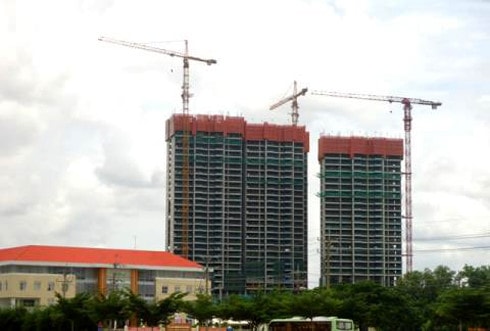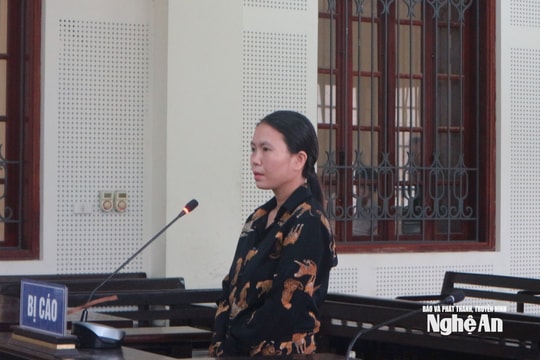Tightening credit for real estate: Many conflicting opinions
Adjusting the safety coefficient for loans is creating mixed opinions as it has a big impact on the real estate market.
Circular 36 of the State Bank stipulates that the maximum ratio of short-term capital for medium- and long-term loans is 60% and classifies real estate as an asset group with a risk coefficient of 150%. After this Circular took effect from February 1, 2015, a lot of money flowed from banks into the real estate market, thanks to which many real estate projects were launched, even revived, many people were able to borrow money to buy houses.
After about 1 year, the State Bank is planning to amend to reduce the ceiling on using short-term capital for medium- and long-term loans from 60% to 40% and increase the risk coefficient of real estate receivables from 150% to 250%.
Many opinions say that we should not “brake the brakes” on the real estate market by tightening the credit valve, and if we do, we need a roadmap to give businesses and even banks time to prepare. The real estate market has just recovered, there is no “bubble” yet, so there is no need to amend the Circular.
 |
| Adjusting the safety coefficient for real estate loans is attracting the attention of experts and businesses. |
According to Mr. Nguyen Tran Nam, Chairman of the Vietnam Real Estate Association, the number of transactions in the real estate market has increased but prices are quite stable and buyers mainly buy for residential purposes. Outstanding credit in the real estate sector is within safe limits; the amended and supplemented regulations in the Housing Law and the Real Estate Business Law will strengthen control and screening of real estate projects and businesses... Mr. Nguyen Tran Nam believes that Circular 36 should not be amended because it will have a negative impact on the current real estate market.
“People's demand for real estate is very large as the economy develops and people's income increases - this is a legitimate need. Therefore, there is no reason not to promote the development of the real estate market to meet people's needs and at the same time develop the economy and society. Therefore, the Vietnam Real Estate Association has sent a document to the Prime Minister, the Governor of the State Bank and the Ministry of Construction not to adjust the safety coefficient for real estate loans in the near future, but to keep it stable as it is now because this is unnecessary and harmful to the country's economy,” Mr. Nam expressed his opinion.
Besides the opposing opinions, many experts and even real estate businesses expressed their agreement that it is time to tighten the credit valve for real estate so that this market can develop healthily and sustainably.
Because, since mid-2015, the number of social housing projects and low-cost commercial housing for low-income people and the poor has been decreasing, while a series of high-end projects have been formed and developed, exceeding the purchasing power and consumption capacity of people with real housing needs, with the risk of creating a virtual "fever" market, with the possibility of a real estate bubble bursting again. Therefore, the fact that banks adjust risk ratios as well as loan coefficients is a warning, a "yellow card" for the real estate market.
Economist Nguyen Tri Hieu believes that for Vietnam's economy to grow steadily, transparency and a healthy real estate market are very important. Therefore, expert Nguyen Tri Hieu supports the amendment of Circular 36 and suggests applying it immediately at the present time.
“Although the amendment of Circular 36 has some negative impacts on borrowers, banks and real estate investors, it is generally beneficial for the economy, especially in making the real estate market healthier at this time. Although these two regulations are tightened, they are not enough to “suffocate” the real estate market or make banks fall into a difficult situation. I think that if we continue to let the real estate situation continue this year, and then implement a roadmap of 6 months or 1 year to apply these measures, the real estate market may fall into a state of either a real estate bubble or fluctuations that will be more difficult to adjust later. Therefore, I suggest applying them right now,” expert Nguyen Tri Hieu suggested.
Agreeing with the amendment of Circular 36, Mr. Nguyen Van Duc, Deputy Director of Dat Lanh Real Estate Company (HCMC) said that this adjustment will promptly correct investors as well as customers buying luxury apartments for trading and speculation, but will also cause congestion for projects in the segment for middle-income and poor people.
Therefore, Mr. Nguyen Van Duc proposed that the draft amendment to this Circular still retains the old ceiling and risk ratio of 60% and 150% for the social housing segment and low-cost commercial housing under 1 billion VND, while the adjustment will fall on the higher-priced segment. Specifically, the apartment segment with a price of 1-2 billion VND will be subject to 50% and 200%, the apartment segment with a selling price of 2 billion VND or more will be subject to 40% and 250%.
“The necessary issue is to distinguish the flow. The State must direct which flow to the people, which flow to businesses to invest in apartments that are useful to society. Therefore, it is necessary to divide into 3 types of apartments with 3 different ratios and risk coefficients so that the government can direct businesses and the real estate market to average apartments, even cheap apartments for the poor and middle-income people,” said Mr. Nguyen Van Duc.
The State Bank of Vietnam certainly has reasons and purposes to adjust the limits and rates related to real estate lending. It is undeniable that although the real estate market has recovered, it still has many unsustainable factors, supply and demand have not really met. Thus, the intervention from credit policies is necessary and must be timely and reasonable for the real estate market to develop sustainably, contributing to the development of the country's economy, especially in the context of increasingly deep integration today./.
According to VOV
| RELATED NEWS |
|---|








